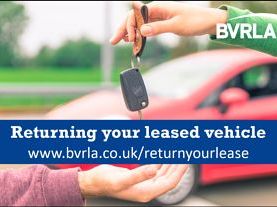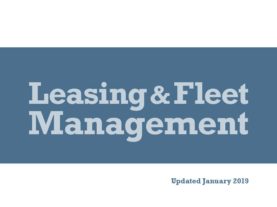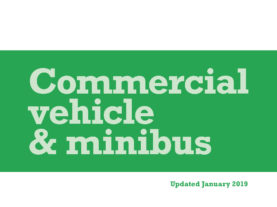Drivers of rented or leased vehicles, including company car drivers must carry a VE103 certificate when taking their vehicle abroad.
In light of the Covid-19 pandemic, members and customers are advised to check the latest travel advice and restrictions from the Foreign and Commonwealth Office. The Government has also published guidance on what you need to do before you travel and when you return to England.
The UK Government also has published information on Driving Abroad, which highlights the need to get a VE103 certificate when taking a rented or leased vehicle abroad.

The VE103 vehicle on hire certificate must be produced on demand to prove that the driver has permission from the vehicle owner to be in possession of the vehicle. It is the only legal alternative to the vehicle log book (V5C). Letters of authority or photocopies are not acceptable substitutes.
Drivers can obtain a VE103 vehicle on hire certificate by contacting their vehicle rental or leasing company before travel. BVRLA members can place an order for certificates here.
Without the correct documentation, drivers could face long delays at the border or worse, risk having the vehicle impounded.
As well as issuing the VE103 vehicle on hire certificate, vehicle rental and leasing companies can provide advice on other necessary documentation, vehicle accessories (e.g. hi-vis jackets), breakdown and insurance cover required for the countries that the driver intends to visit.
Frequently Asked Questions:
What happens if you are stopped in your rented or leased vehicle and you don’t have a VE103 certificate?
The consequences will vary according to the country, the law enforcement agency and even the time of day in which the vehicle was stopped. The driver may be fined, and the vehicle can be impounded. Without a VE103 certificate you are vulnerable to a potentially major inconvenience. Please note that the VE103 does not guarantee that the country you are visiting will allow you to cross the border in the vehicle.
In which countries do you need a VE103 certificate?
All EU/EEA member states: Austria, Belgium, Bulgaria, Croatia, Republic of Cyprus, Czech Republic, Denmark, Estonia, Finland, France, Germany, Greece, Hungary, Iceland, Republic of Ireland, Italy, Latvia, Liechtenstein, Lithuania, Luxembourg, Malta, Netherlands, Norway, Poland, Portugal, Romania, Slovakia, Slovenia, Spain and Sweden.
As well as: Albania, Andorra, Belarus, Bosnia and Herzegovina, Gibraltar, Guernsey, Isle of Man, Jersey, Macedonia, Moldova, Montenegro, Norway, Russian Federation, Serbia, Switzerland, Turkey and Ukraine.
Do I need one to travel from Northern Ireland into the Republic of Ireland?
Yes. To cross the border to the Republic of Ireland in your hire/lease vehicle, you will need a VE103 certificate if the vehicle originates from/is registered in, Great Britain or Northern Ireland.




